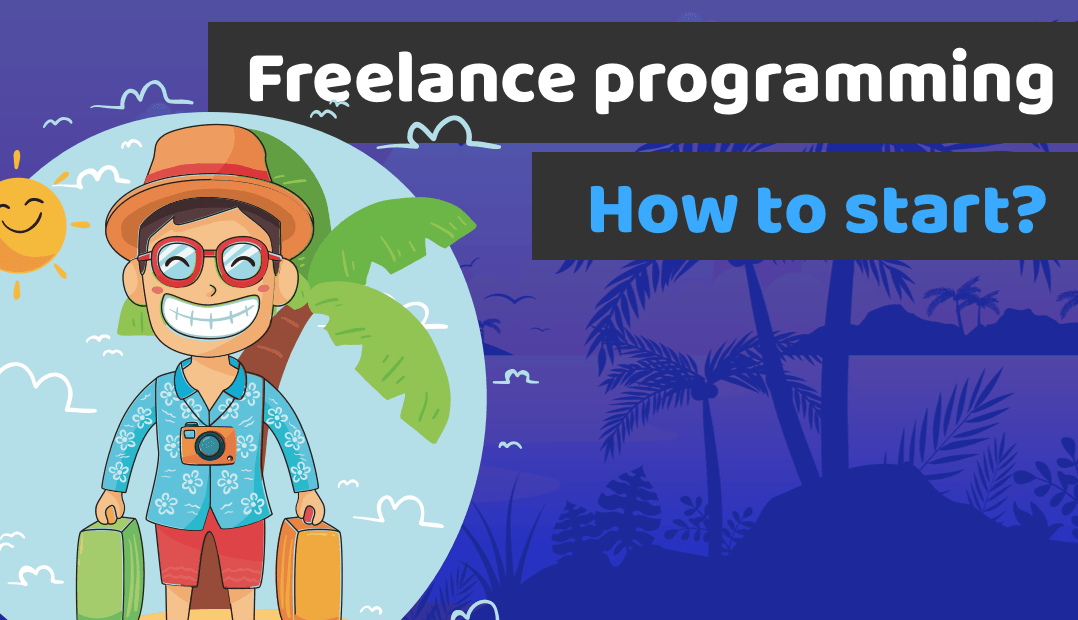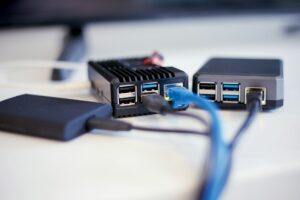Decoding the Code: A Comprehensive Guide on How to Become a Freelance Programmer

Introduction:
The world of freelance programming offers a gateway to a dynamic and ever-evolving field, where individuals with a passion for coding can transform their skills into a flexible and rewarding career. As technology continues to advance, the demand for talented programmers remains high, creating abundant opportunities for freelancers. In this comprehensive guide, we will explore the intricate path to becoming a freelance programmer, covering everything from mastering coding languages and building a standout portfolio to effectively marketing your skills and managing the business aspects of freelancing.
Section 1: Mastering Coding Languages and Skills
- Select Your Coding Language:
- Choose a programming language that aligns with your goals and interests. Common choices include Python, JavaScript, Java, and Ruby. Specializing in a language can enhance your proficiency and marketability.
- Develop Strong Problem-Solving Skills:
- Cultivate problem-solving abilities, a cornerstone of successful programming. Practice tackling coding challenges, participate in coding competitions, and engage in projects that require innovative solutions.
- Master Web Development Basics:
- For web-focused freelancers, master essential web development technologies such as HTML, CSS, and JavaScript. Understand the basics of front-end and back-end development to create holistic and functional web applications.
- Explore Frameworks and Libraries:
- Familiarize yourself with popular frameworks and libraries related to your chosen coding language. For example, if you are into web development, learn about React, Angular, or Vue.js for front-end development.
Section 2: Building a Standout Portfolio
- Create a Personal Website:
- Establish a professional online presence with a personal website. Showcase your skills, projects, and experience. A well-designed website serves as your digital resume and portfolio.
- Feature Diverse Projects:
- Populate your portfolio with a diverse range of projects. Include personal projects, open-source contributions, and any freelance work you’ve undertaken. Demonstrate your versatility and problem-solving abilities through these projects.
- Provide Code Samples:
- Include code samples for each project in your portfolio. This allows potential clients to assess your coding style, structure, and adherence to best practices.
- Highlight Your Achievements:
- Emphasize the impact and results of your projects. Showcase measurable achievements, such as improved website performance, streamlined processes, or positive user feedback.
Section 3: Effectively Marketing Your Skills
- Utilize Freelance Platforms:
- Join popular freelance platforms like Upwork, Freelancer, or Toptal. Create a compelling profile that highlights your skills, experience, and expertise. Actively bid on projects that align with your abilities.
- Optimize Your LinkedIn Profile:
- Leverage LinkedIn to connect with potential clients, fellow freelancers, and industry professionals. Optimize your profile with a professional photo, detailed work experience, and recommendations.
- Participate in Online Communities:
- Engage in programming communities, forums, and social media groups. Share your knowledge, contribute to discussions, and build relationships with other programmers and potential clients.
- Network Offline:
- Attend coding meetups, conferences, and networking events in your area. Building connections in person can lead to valuable opportunities and collaborations.
Section 4: Navigating Business Aspects of Freelancing
- Set Clear Freelance Rates:
- Determine your freelance rates based on factors such as your skill level, experience, and the complexity of the project. Research industry standards and ensure your rates are competitive.
- Create Detailed Contracts:
- Develop comprehensive contracts for your freelance projects. Clearly outline project scope, deliverables, timelines, payment terms, and any additional terms or conditions. Contracts protect both you and your clients.
- Invoice Promptly:
- Establish a systematic approach to invoicing. Send invoices promptly upon project completion, and include detailed information about the services provided, rates, and payment instructions.
- Manage Finances Effectively:
- Keep track of your income and expenses. Utilize accounting software or apps to maintain organized financial records. Set aside funds for taxes to avoid financial stress during tax season.
Section 5: Continuous Learning and Skill Enhancement
- Stay Updated on Industry Trends:
- The programming landscape evolves rapidly. Stay informed about the latest technologies, frameworks, and industry trends. Subscribe to relevant blogs, follow influential figures, and participate in online communities.
- Contribute to Open Source:
- Contribute to open-source projects to enhance your skills and visibility. Collaborating with the broader programming community demonstrates your commitment to continuous learning and community involvement.
- Invest in Continuous Education:
- Enroll in online courses, workshops, or certifications to deepen your knowledge in specific programming languages or technologies. Continuous education keeps your skills current and competitive.
- Seek Feedback:
- Welcome feedback on your code and projects. Engage with fellow programmers, participate in code reviews, and seek constructive criticism to improve your coding practices.
Section 6: Conclusion
Becoming a freelance programmer is a journey marked by continuous learning, adaptability, and a commitment to excellence. By mastering coding languages, building a standout portfolio, effectively marketing your skills, navigating the business aspects of freelancing, and embracing continuous learning, you can carve a successful path in the dynamic world of freelance programming. Remember, each line of code you write is an opportunity to create, innovate, and contribute to the ever-expanding digital landscape. As a freelance programmer, your journey is not just about coding—it’s about shaping the future through your skills and passion for technology.







